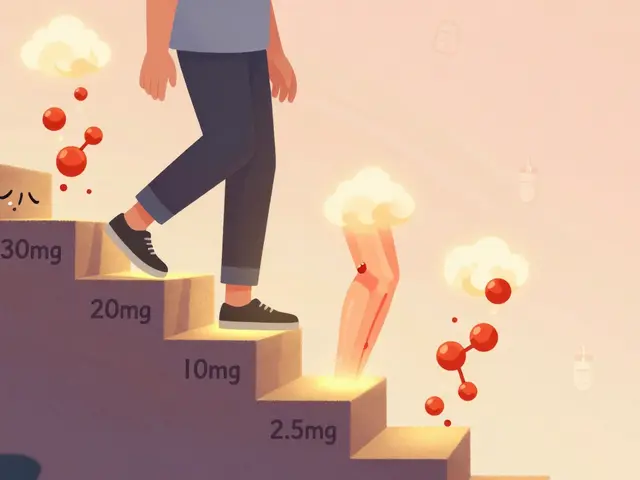Women’s Health: Simple, Real‑World Advice You Can Use Today
When it comes to staying healthy, women face a unique mix of challenges and opportunities. Hormones swing, bodies change, and life stages bring new needs. The good news? Most of these issues have clear, practical steps you can take right now. Below you’ll find straightforward tips for everything from a smoother period to a calmer menopause.
Balance Your Hormones Without Crazy Diets
Hormone spikes aren’t a mystery—stress, sleep, and food are the main drivers. Try swapping one sugary snack for a handful of nuts each day; the steady protein helps keep insulin steady, which in turn steadies estrogen and progesterone. Aim for 7‑9 hours of sleep and a brief walk after meals—both lower cortisol, the stress hormone that throws everything off balance.
Period Care That Actually Works
Messy cramps, unpredictable flow, or heavy bleeding? First, track your cycle with a free app or a simple notebook. Spotting patterns lets you anticipate trouble and talk to your doctor with concrete data. If cramps are your biggest pain, a warm compress or a short 10‑minute stretch routine (think hip‑flexor and lower‑back moves) can loosen tight muscles and cut pain fast. Over‑the‑counter ibuprofen works, but try it after food to protect your stomach.
For heavy bleeding, iron intake matters. Add a cup of cooked spinach, lentils, or a smoothie with kefir and a splash of orange juice to boost absorption. If you’re still low on energy, a quick blood test can reveal if you need an iron supplement.
Pregnancy Prep: What to Do Before the Test
Thinking about a baby? Start with a pre‑conception check‑up. Your doctor will look at folic acid levels, thyroid function, and any chronic conditions. In the meantime, swap out caffeine for green tea and aim for 400 µg of folic acid daily—found in fortified cereals or a simple supplement. Maintaining a healthy weight (BMI 18.5‑24.9) reduces the risk of complications, and a short daily walk keeps your heart and joints ready for the extra load.
Stay hydrated—2‑3 liters of water a day supports amniotic fluid and helps prevent constipation, a common pregnancy woe. If you’re dealing with nausea, keep ginger tea or crackers handy; a little bite before you get up can calm the stomach.
Menopause Made Manageable
Hot flashes, mood swings, and sleep trouble are the triple threat of menopause. One of the easiest fixes is to dress in layers—light cotton tops over a breathable sweater let you peel off when the heat hits. A nightly routine of a cool shower, dim lights, and a short meditation can signal your brain that it’s time to wind down, easing night sweats.
Bone health becomes critical after 50. Add calcium‑rich foods like yogurt, almonds, and fortified plant milks, and pair them with vitamin D (sun exposure or a modest supplement). Resistance training—bodyweight squats, wall push‑ups, or light dumbbells—twice a week preserves muscle mass and keeps metabolism humming.
Finally, don’t ignore mental health. Talk to a friend, join a local support group, or try a journaling habit. Sharing experiences normalizes the changes and can reduce anxiety.
Women’s health isn’t a one‑size‑fits‑all checklist; it’s a series of small, consistent actions that add up. Pick one tip from each section, try it for a week, and notice how you feel. The next time you open FollowHook Health, you’ll have a solid foundation to explore deeper topics like specific medications, supplement reviews, and disease guides tailored for women.
Mircette Birth Control: Benefits, Effects & User Guide
Explore how Mircette works, its benefits, possible side effects, and smart tips for real-life users. Straightforward advice, no judgement, just the facts.
View More




